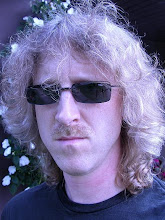So here's my little thought.
A 'palindrome' is a word, phrase, or sentence that's spelled the same backwards and forwards, right? So why isn't the word itself a palindrome? Wouldn't that just make more sense?
I guess our language is full of little things like that -- the word 'onomatopoeia' doesn't sound like the thing it describes, so it isn't onomatopoetic -- but couldn't we fix the place up a little? Or at least supply some more options? It's not like we're trying to preserve a tiny little language set anyway. You say 'synonymous' and I say 'redundant.'
I envision a world full of synonyms for 'palindrome.' Some of them are palindromic themselves and some, like our current word 'palindrome,' aren't. 'Palinnilap' would be a great synonym for palindrome -- it keeps the Greek etymology of 'back again' and drops the 'running' part for a second, reversed, 'back again' -- and has the advantage of being a palindrome itself. That word's even better than the original, I'd have to say if I weren't so adorably humble, but I'm sure there are lots of other perfectly good constructions that would lead to synonyms, both palindromic and not. Even more options appear if one drops the rather archaic requirement of reasonable etymology. Imagine 10,000 words that all mean 'palindrome:' some are palindromic and some are not.
Now if we lived in a world with such a rich selection of words, it would be important to be able to talk about those words. A poet, you know, or a lyricist or even a third grader composing a taunt might require a non-palindromic palindrome synonym, which is a description that does not slide easily from the tongue. It really requires a single-word description for everyday use. And soon you have words to describe the four possible classes of words: palindromic palindrome synonyms, non-palindromic palindrome synonyms, palindromic words that are not synonymous with 'palindrome,' and non-palindromic words that are not synonymous with 'palindrome' (the last being a surprisingly large set). Even for us, these four classifications cover all possible words; it's just that the utility of this division is a little questionable in our current language. Still, it's good to make structures to help us understand our language and improve it for future speakers, right? So we categorize.
Then comes the obvious next question: what should we call non-palindromic names for the category of palindromic palindrome synonyms?
If only there were money in theoretical linguistics…
Tuesday, January 12, 2010
Subscribe to:
Post Comments (Atom)

No comments:
Post a Comment